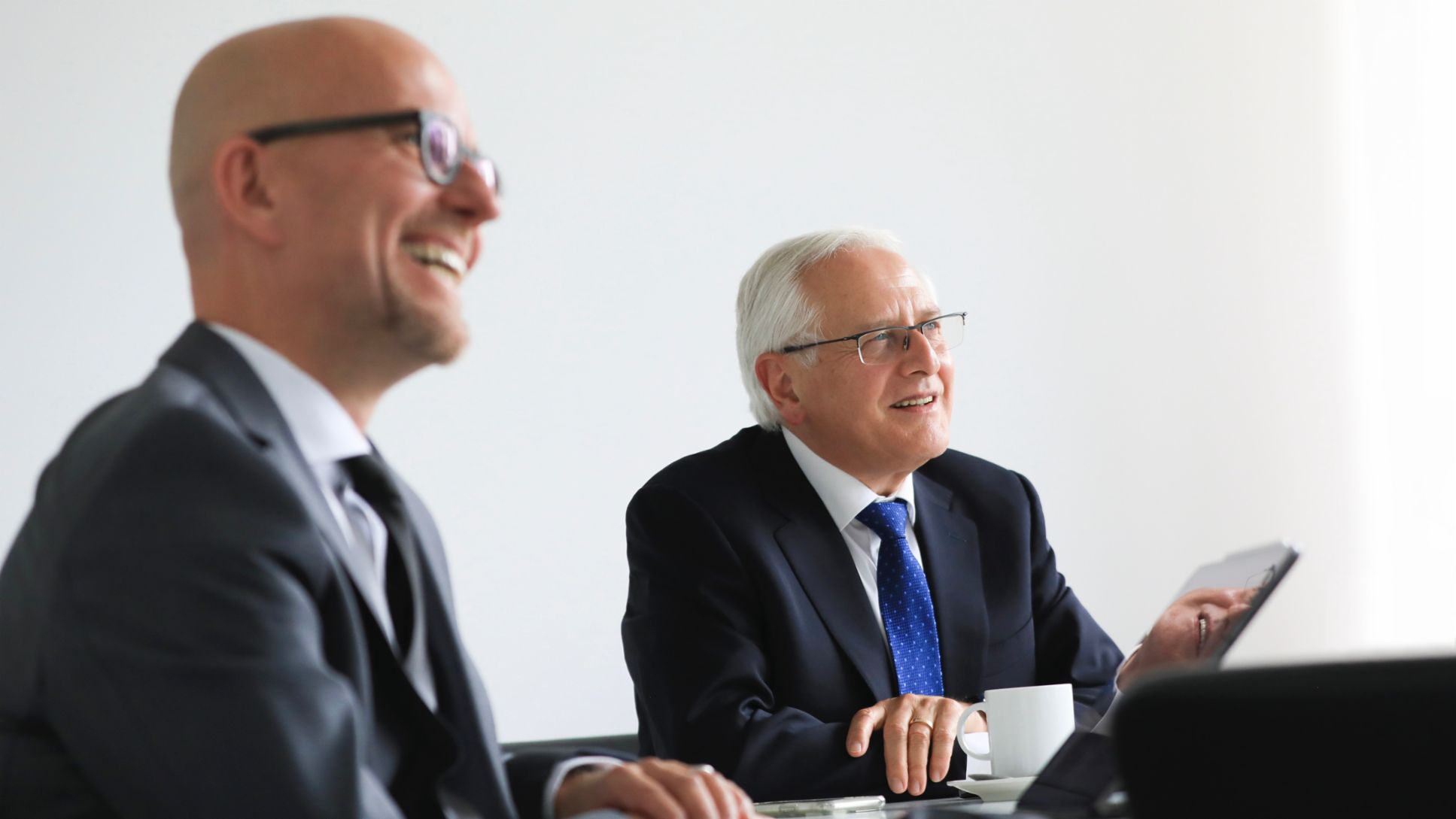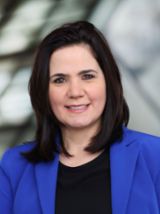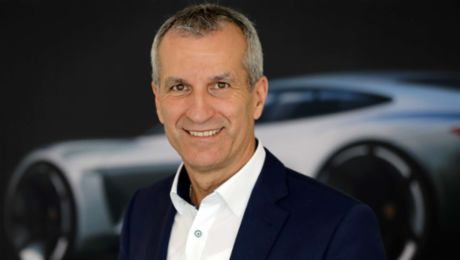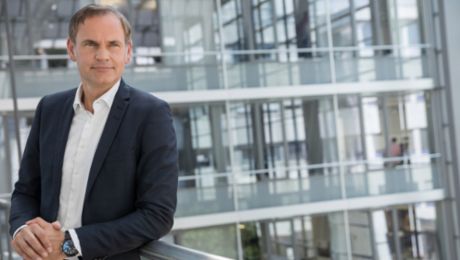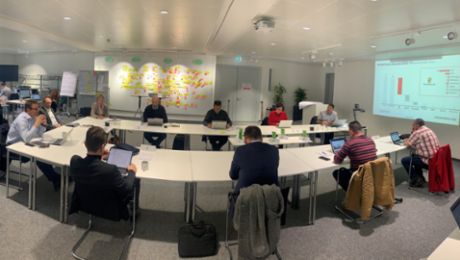Coronavirus affected Porsche too. What are your thoughts on what happened during this phase?
Uwe-Karsten Städter: “We have never experienced anything like this. The coronavirus pandemic has affected all of us, and that includes our supply chain partners. We had to adapt to this situation in a very short space of time.”
Porsche has a high level of external added value. What is its regional distribution?
Städter: “Our supply chain is well positioned, with a 50:50 mix of national and international suppliers. Porsche is traditionally deeply rooted in Germany and Europe but the picture is made up of many different aspects. Our German suppliers also manufacture in other countries, for example. We have close ties with partners in Eastern and Southern Europe. Chinese suppliers account for a smaller proportion at around ten per cent mainly supplying electrical and electronic components.”
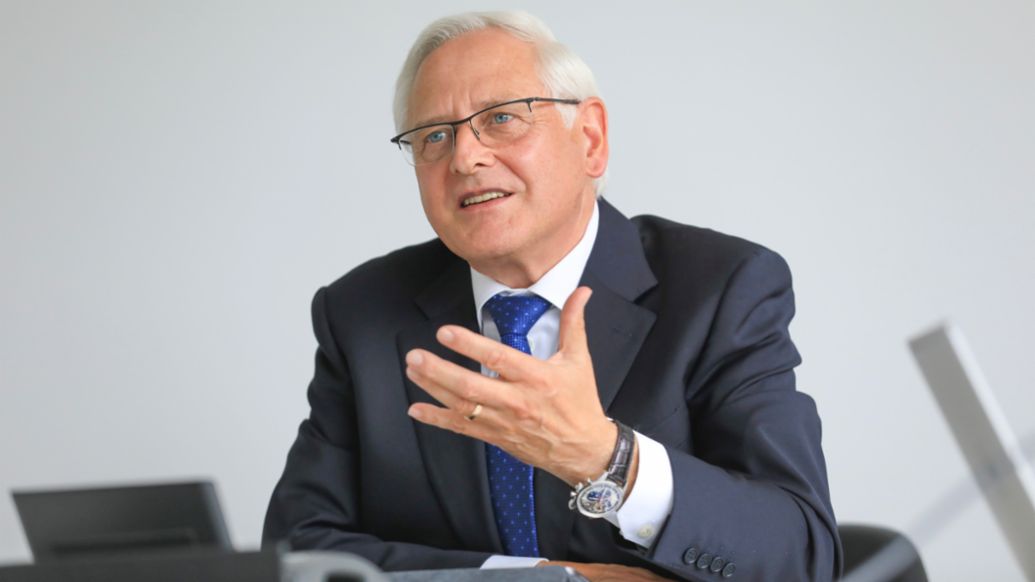
The supply chain was disrupted as a result of the coronavirus pandemic. Have you already taken precautions in case of a possible second wave?
Städter: “The primary focus of our preparations has naturally been to ensure a successful restart, because that was by no means straightforward. Early communication with suppliers was important for this. Our purchasing teams were in touch with critical suppliers on a daily basis to ask them about their situation. From this ongoing communication, we’ve also drawn conclusions for a possible second wave of the pandemic.”
Olaf Bollmann: “We established and maintained communication through our Coronavirus Task Force. That was a huge effort for the team: in some cases there were several conference calls every day with over a hundred participants, including financial specialists, as well as logistics and procurement experts. We coordinated closely with all our partners. We relied heavily on new media for this: virtual meetings helped us to process the huge amount of information with the necessary speed. We want to keep this agility moving forwards and are appealing to our suppliers not to fall back into old habits. Because this crisis can then also be an opportunity, one from which we all learn and grow.”
Are you now better prepared, for example through more comprehensive warehousing?
Bollmann: “Warehousing plays a very limited role in our operations at Porsche. That is not something our just-in-time and just-in-sequence concepts are geared towards. And that is the basis for my second appeal to suppliers: we must ensure that we agree and take advantage of all possible additional shifts to be prepared for a possible second wave.”
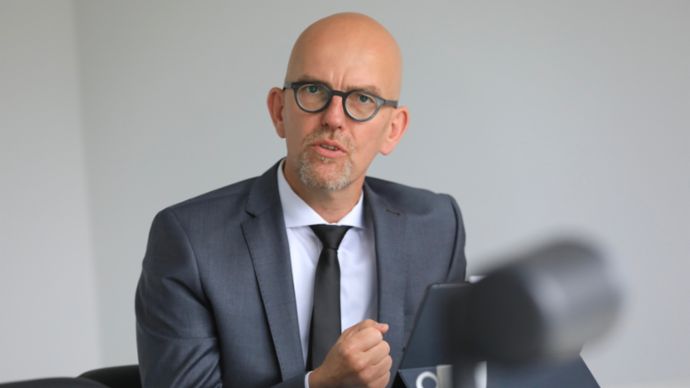
Have you helped your suppliers in keeping up with your pace during the production ramp-up?
Städter: “Porsche was mindful of its responsibilities to society and partners during the crisis. Early on, we asked all our suppliers about their preparations for the restart. The top priority was protecting employee health. We shared our safety standards with our partners and offered to obtain hygiene and protective equipment for them. On the operational side, we got actively involved with some suppliers that were experiencing difficulties. That even went as far as sending employees to provide assistance at the companies in question. All of this forms part of our understanding of solidarity.”
How far does this solidarity with suppliers extend? Did you also provide direct financial assistance to strategically important suppliers?
Städter: “Our suppliers know that, in Porsche, they have a reliable partner at their side. You do not abandon long-standing partners when the going gets tough. In recent weeks, we have been providing financing support to some suppliers, particularly the smaller ones. Not all of them have the financial safety net to survive for months on end while the crisis is ongoing and we are in the position to help in these cases. Examples include extended payment terms or compensation payments for new tools, where we’re also making down payments if necessary. We’re exploring all available possibilities. Of course, we are somewhat more conservative with large and stable suppliers but we take all requests seriously.”
How long will it be before things get back to normal?
Städter: “We expect that we can quickly get back to where we were before the crisis. With this in mind, we discussed special shifts and extended working hours early on. Our employees are on board – the workforce is extremely willing to contribute to this. I am optimistic that Porsche will ultimately come out of the crisis stronger.”
Six weeks without any production – what does that mean in numbers?
Städter: “It really hurt. While our plants were shut down, the Executive Board analysed where we were in minute detail every day. Getting over a production stoppage like it is not easy, even for a company like Porsche, which made it all the more important to have the preparations for the restart as close to perfect as possible. We learned a lot – it is important to deal with the virus in a responsible way and to look out for one another. I have the greatest respect for everyone in our factories and at our suppliers, who made the restart possible while observing protective and hygiene measures. Now we are looking to the future with optimism. We want to make up the lost vehicle volume with Saturday shifts and by working on bridge days between public holidays and the weekends. We are also calling for our suppliers to do the same. If we get everything right – and I am confident we will – it will be a great achievement by the entire supply chain.”
Info
This text was first published in Automobil Industrie.
The interview was conducted by Christian Otto.
